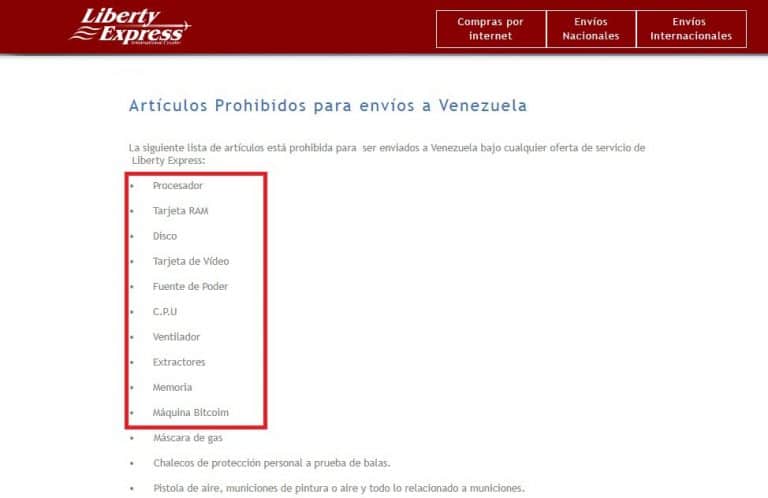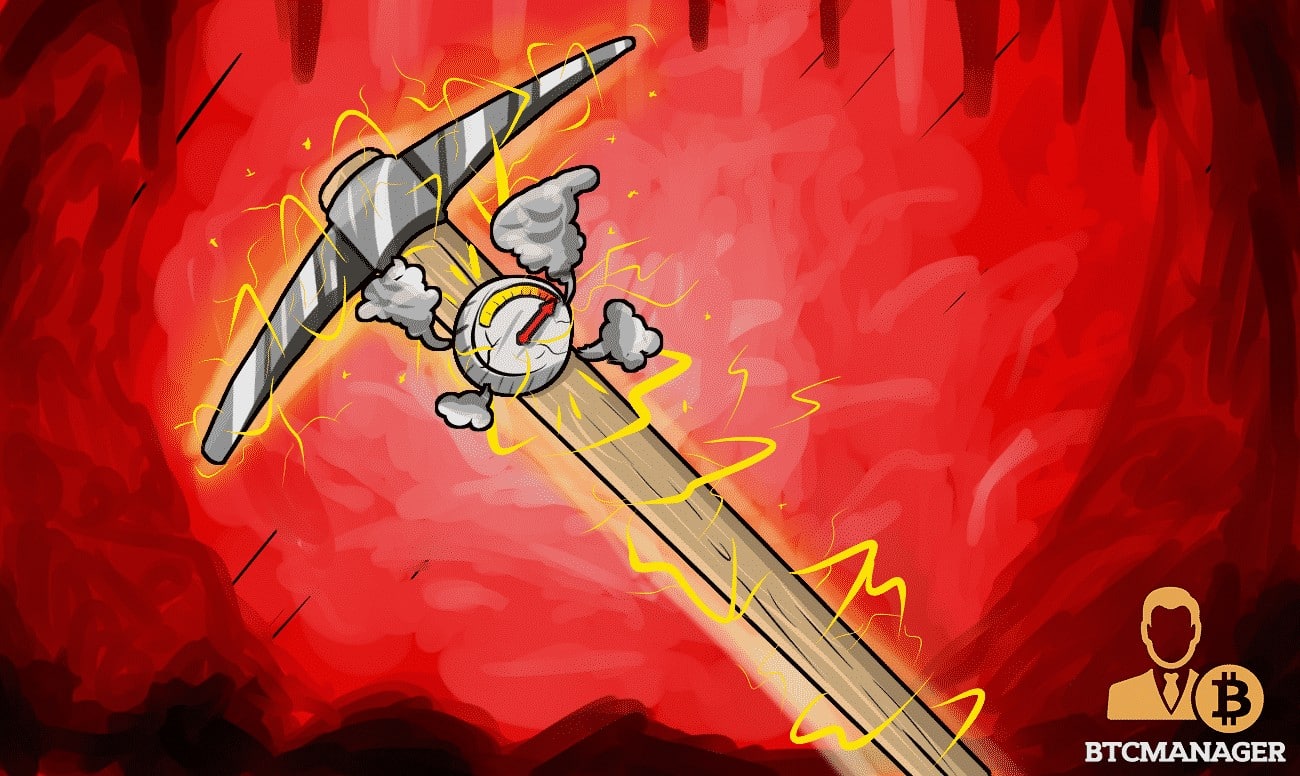Despite Venezuela’s proactive stance on cryptocurrencies, the country’s international shipping companies passed an official measure on May 29, 2018, stating that cryptocurrency mining equipment will no longer be on the list of “approved shipping items.”
Creating Borders in a Borderless Ecosystem
According to local reports, the Venezuelan customs authorities would now confiscate mining equipment, including miners, graphics cards, and computers, that arrive in the country by sea, air, and land routes. The rule was levied with immediate effect.
To prevent any surprise setbacks for customers, the country’s major shipping companies have updated their websites with the new rule, prohibiting the entry of miners in the South American nation.
Liberty Express, a shipping giant that until recently shipped miners to the country, noted that mining equipment could no longer enter the country, and recommended customers not to attempt to send the items, else they would end up facing a loss.

Liberty Express Website Specifying the Move. Source: Liberty Express
While it is observed that companies such as DHL, Domesa, and LearExpress have not included mining equipment on their list of prohibited items yet, reports claim that users have been personally notified to avoid any inconveniences
While shipping companies are themselves not responsible for policing imported goods, Venezuelan authorities are infamous for their handling of imports, with citizens regularly reporting opened packages, incomplete orders, and package theft. Interestingly, the situation is more prevalent in airport customs. Thus, their notice to customers is indeed benevolent.
The Venezuelan Crypto Paradox
As observed, Venezuelan President Nicolás Maduro has maintained that the country is a pioneer in the digital currency ecosystem and expressed Venezuela’s cryptocurrency push in worldwide conferences after the launch of controversial state-backed cryptocurrency, the petro.
However, the statements lack credibility, as several irregularities have been noted in the country’s dealing with cryptocurrencies on a local level, especially that of making access to digital currencies difficult for citizens. Until the ban, cryptocurrency mining was a means to generate income for several citizens, who cope with the country’s economic crisis.
Earlier in April 2018, Angel Alvarez, president of the National Association of Cryptocurrencies (Asonacrip), informed local news that the country was in the process of introducing measures that pertain to cryptocurrency mining, reporting at the time that the nation was evaluating import laws for “digital mining equipment.”
Additionally, the country was considering setting up mining rig manufacturers on their soil, to not rely on foreign equipment.
Sourced from crypto.news.
Written by contributor on 2022-05-04 07:19:07.









